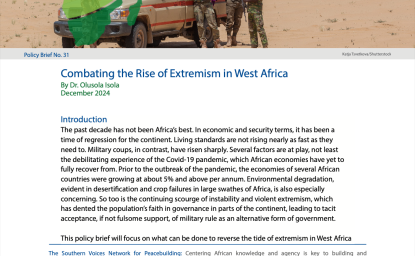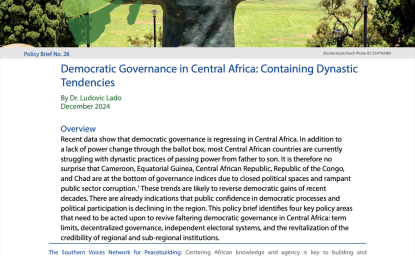Latin American Program in the News: Neighbors in Arms
Associate Colby Goodman discusses arms trafficking between the United States and Central America and the nefarious impact that it is having on the region's overall security.
Associate Colby Goodman discusses arms trafficking between the United States and Central America and the nefarious impact that it is having on the region's overall security.
According to sources at the ATF, traffickers are smuggling some U.S.-purchased firearms to Central America through lesser-known shipping companies by land and sea --often hiding firearms in shipments of older cars, clothes, and audio equipment. After a weather-related accident totaled a Guatemala-bound truck near the U.S. border with Mexico in 2009, for instance, U.S. authorities discovered that one of the boxes in the debris contained five U.S.-origin Glock pistols, among several other firearms hidden inside speakers. In Honduras, the ATF says, auto shops are even offering catalogues of various firearms to purchase that they will then smuggle into the country in old vehicles from the United States.
The new Woodrow Wilson Center report also reveals that Guatemalan authorities seized 46 U.S.-origin ordnance items in recent years, ranging from M-67 hand grenades to M-406 40mm grenades to an M-72 light anti-tank rocket. Except for the M-72 rocket, which the United States sold to Colombia, most of these items were part of U.S. Foreign Military Sales (FMS) to El Salvador in the late 1980s and early 1990s. According to ATF, MS-13 transnational gang members are smuggling these items from El Salvador into Guatemala, for sale to Los Zetas and other Mexican cartels.
In order to read complete article, please click here.

The Wilson Center’s prestigious Latin America Program provides non-partisan expertise to a broad community of decision makers in the United States and Latin America on critical policy issues facing the Hemisphere. The Program provides insightful and actionable research for policymakers, private sector leaders, journalists, and public intellectuals in the United States and Latin America. To bridge the gap between scholarship and policy action, it fosters new inquiry, sponsors high-level public and private meetings among multiple stakeholders, and explores policy options to improve outcomes for citizens throughout the Americas. Drawing on the Wilson Center’s strength as the nation’s key non-partisan policy forum, the Program serves as a trusted source of analysis and a vital point of contact between the worlds of scholarship and action. Read more


